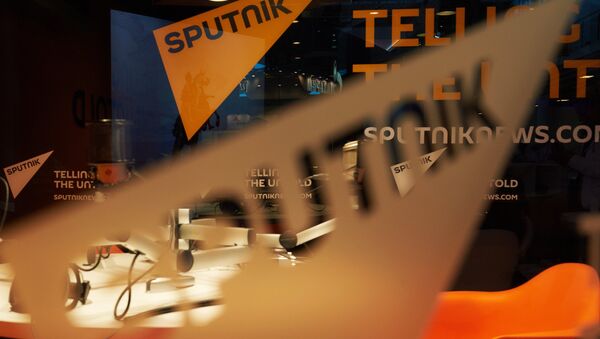In an interview for the EU-financed Ukrainian newspaper Evropeyskaya Pravda on Monday, Scherba blamed Russian foreign language media for strengthening Austrians' pro-Russian feelings. Furthermore, the ambassador even alluded to a conspiracy within Austrian media itself for what he suggested was pro-Russian coverage.
"Russian propaganda has an effect," the ambassador said. "But I think that it doesn't so much form pro-Russian sentiment as it cements it. When I arrived in Austria, these feelings were already present. It's hard for me to say when these sentiments were formed." Scherba was appointed ambassador in November 2014.
As for Russian foreign language media, Scherba suggested that they play an important supporting role. "Russia Today [RT] and Sputnik, as well as some fringe leaflets, financed with Russian assistance, mostly play a role supporting the spirit of people who have already become Russian-friendly…But they do not form these attitudes. These sentiments are formed by the national media and lobbyists."
Earlier this summer, the Ukrainian Embassy in Vienna was hit with a scandal after Der Standard, a leading Austrian daily newspaper, revealed that several wounded fighters from Ukraine's Azov Battalion, an ultranationalist volunteer fighting force that has been accused of war crimes in eastern Ukraine, were being treated in Austria.
Western officials and media have regularly and baselessly accused Russian foreign language media, particularly Sputnik and RT, of being 'propaganda' and 'disinformation', even as its popularity among Western readers and listeners grows. On Sunday a piece in the New York Times claimed that Russian media were creating intentionally inaccurate or distorted reports to skew reader and viewer perspectives, without offering any evidence to substantiate their claims.




